 |
Our Staff |
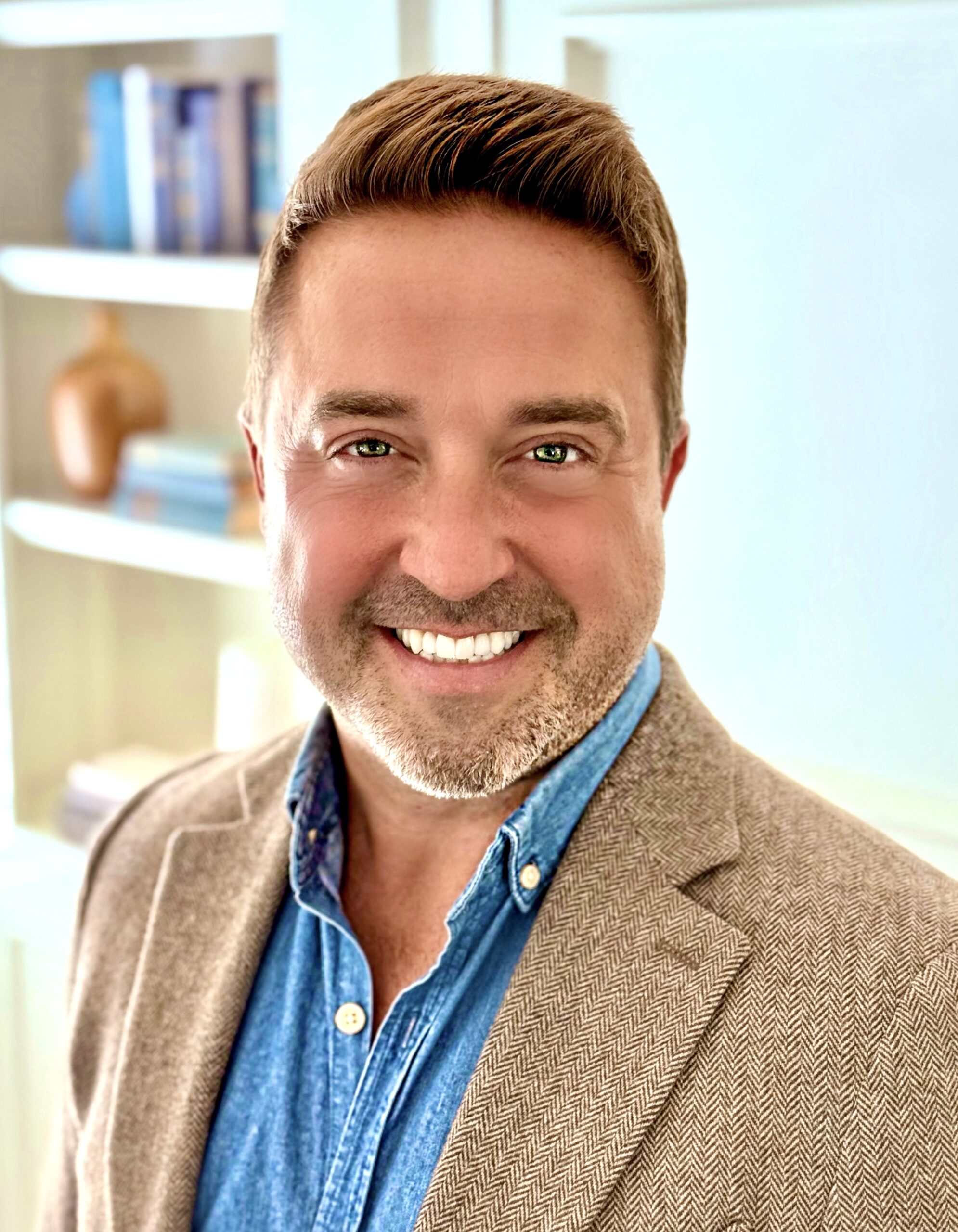
Ryan Janis, Psychologist & Supervisor
I founded Downtown Mind Wellness in 2013 with the idea to offer high quality psychotherapy services. My intern at the time, Dr. Lindsay Kramer, and I opened a tiny office with a window facing a giant concrete wall in the middle of DTLA. We were informed by the property manager that our “office” was meant to be a supply closet. We made it work, and sure enough, word spread quickly about the level of services we were providing. We worked hard, and our reputation for being a super reliable, solid, and modern psychotherapy practice grew. Fast forward to today — We now have 11 offices and over 20 clinicians providing psychotherapy, medication management, and testing & assessment services. Dr. Lindsay became a licensed psychologist years ago. She is still with our practice, and she now has a few interns of her own. I’m confident you will find your therapist to be extraordinarily reliable, experienced, and active in helping you overcome personal obstacles to become your best self. Frankly, I’m very proud of the team here at DMW. We are a team, a family, and best of all, we challenge one another to become better and better through a collaborative approach. Plus, if you’re in need of psychiatric medication, we have Nurse Practitioners on staff who are in regular coordination with our therapists to ensure your optimal care. If you ever have a concern or question, please feel free to contact me directly.
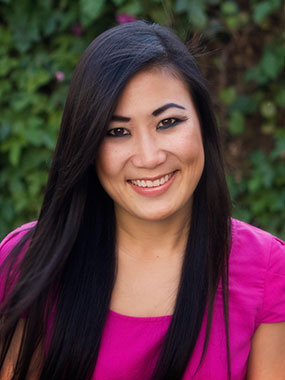
Lindsay Kramer, Psychologist
Whenever someone asks me why I chose to be a therapist, I always respond, “It chose me.” From a very young age, I was fascinated with feelings—for instance, why did I cry when I was overjoyed? As I completed my way through six years of graduate education in psychology, I became curious about other things—avoidance of feelings, motivation behind behaviors, and the complications of relationships. My clinical training and my own personal journey into therapy taught me about needs, vulnerabilities, and fears. My goal as a therapist is to help others identify and accept these needs and fears in a safe and nonjudgmental environment. I received my doctorate degree in psychology, and I am highly trained in the areas of relationship difficulties, identity issues, attachment, adoption, eating disorders, anxiety, and depression.
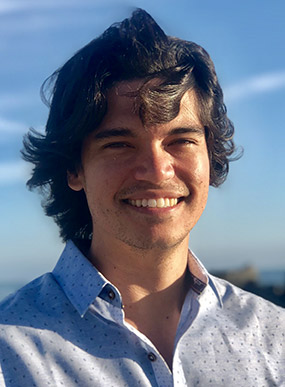
Dylan Ramos, Psychologist
I believe that relationships, with others and with oneself, are essential to living a rewarding and enjoyable life. Healthy relationships and deep self-knowledge can be the remedy to our distress and the key to our healing. My approach is collaborative— I do not expect you to enter my office and “fix” yourself, but rather to work alongside me to cultivate insight, deepen relationships, and develop a stronger sense of self. Often we walk through life being merely existing—my goal is to help you thrive. I am confident that my diverse experience and training can aid you in overcoming any obstacle so that you can live a well-balanced and joyful life.

Nicole Hendrickson, Psychiatric Intake Coordinator, LPCC
Many of us walk around every day wearing some version of a mask. Some of us do so to protect or take care of others, some of us wear the mask to fit in, and some of us wear it because of shame. My hope is that everyone I work with becomes a little bit more comfortable with the person underneath the mask– their true authentic self. Whether you struggle with depression, anxiety, the effects of trauma, addiction, or difficulty in relationships with others, I truly believe the therapeutic relationship can be a healing one, and be the first step in taking off your mask.

Morgan Bogad, MFT
Something in your life has become enough of a problem that you are seeking help. When things don’t turn out the way you imagined, or you find yourself repeating the same patterns that keep you working against yourself, it is only natural to feel anxious, depressed, and/or overwhelmed. You might feel blindsided by a big life transition, paralyzed by shame or fear, or as if you are constantly fighting an uphill battle. Whatever the issue, you are capable of making change, and I am here to help.

Nikki Guzofsky, MFT
So much of life is about relationships. This begins with the relationship with oneself, which is the foundation upon which people thrive. I believe the therapeutic relationship is at the crux of self-discovery and personal growth, and through this connection, individuals begin to develop a greater understanding of themselves, their thoughts, feelings, behaviors, motivations and desires.

Gita Donovan, Psychologist
We all have ideals– how we think we should feel, how we feel we should think, how we want others to behave towards us, how we want our life to unfold. When reality doesn’t match our ideals, it can bring confusion, frustration, even despair. We may feel trapped between our ideals and reality, leading us to believe we are spinning in circles.
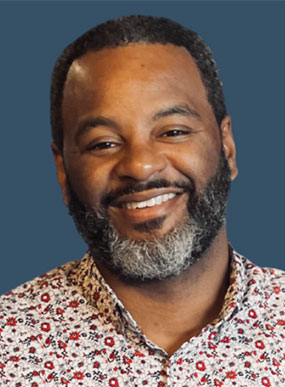
Aaron Jones, MFT
Humans are diverse and gloriously complex creatures. Whether it be our successes, failures, hopes, fears, trauma in our family or origins, or any one diagnosis—we are much more than the total sum of all equal parts. Sometimes, despite our best efforts, we get lost along the path towards health and happiness. Even the best of us need a little help from time to time. Healing happens within relationships; relationships we have to ourselves, to our beloved others, our careers, family, and even the relationship we have with the words that describe our suffering.
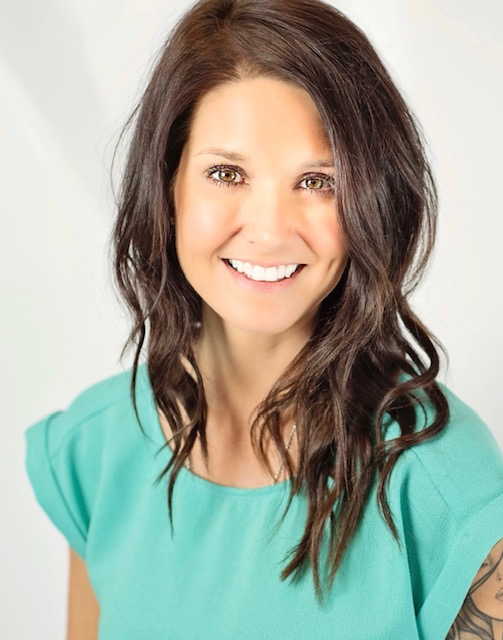
Elizabeth (Beth) Doddato, Psychiatric Nurse Practitioner
My goal is to help you achieve a more balanced, authentic, and fulfilling life. If you’re apprehensive about taking medication or have felt pressured into believing that medication is the only means of achieving a healthy and balanced life, it is not. Medication is just one of many tools available to aid in the management of symptoms, on the journey to achieving your treatment goals. My aim is to show you multiple ways to achieve a rewarding and gratifying life and provide you with resources to succeed along the way.

Cheryl Felix, Psychologist
Vulnerability is a form of strength that allows for exploration and discovery. To sit with somebody to allow space for the vulnerable takes courage and the intuition to know that circumstances can change. I know this process to be as rewarding as it is harrowing. My role as a therapist is to be present and provide a place of safety, listening, truth, and guidance.

Brian Bajah, Psy.D.
The body grows sequentially from young to old; aging is predetermined, but the information a person acquires while aging is not predetermined. We owe it to ourselves to work on ourselves as we strive to grasp every piece of information that is instrumental to our growth.
We are born with a clean slate; even though our parents do a lot of imprinting, what we continue to feed our minds with goes a long way in shaping who we become. A lot of us have blind spots when it comes to self-reflection. How often have we looked at ourselves inwardly and accepted that a part of us needs change? This is harder for some of us than it is for others. Deciding to better oneself is an excellent step toward self-actualization; not everyone has taken this step. I have sought therapy myself and appreciate the healing that comes from it. The healthiest path to recovery is processing your feelings; no matter how severe your injuries are, processing them prevents long-term emotional effects. The unhealthy path would be to repress those feelings. You can never underestimate the importance of self-care.
We are born with a clean slate; even though our parents do a lot of imprinting, what we continue to feed our minds with goes a long way in shaping who we become. A lot of us have blind spots when it comes to self-reflection. How often have we looked at ourselves inwardly and accepted that a part of us needs change? This is harder for some of us than it is for others. Deciding to better oneself is an excellent step toward self-actualization; not everyone has taken this step. I have sought therapy myself and appreciate the healing that comes from it. The healthiest path to recovery is processing your feelings; no matter how severe your injuries are, processing them prevents long-term emotional effects. The unhealthy path would be to repress those feelings. You can never underestimate the importance of self-care.

Ivan Gonzalez, LCSW
Sometimes in life, we come across obstacles that prevent us from living our day to day life. Therapy is available as a tool to help us manage those life stressors. Seeking a therapist is the first step in prioritizing your mental health. My job as a therapist is to work collaboratively with you in a safe, open, and nonjudgmental space to help you reach your goals.

Jordan Swiskow, Psychiatric Nurse Practitioner
My professional journey has taken me to a variety of settings and given me the opportunity engage with diverse communities and cultures. But despite my many years of experience in the medical field, my roots are in my yoga training. I have found that when I’m able to combine the right medication with a mindfulness practice, our work together may not only be about symptom management, but also about developing and enriching one’s life.
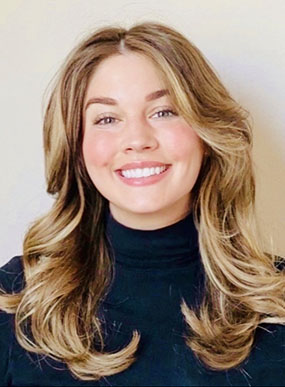
Brittany Magid, Psy.D.
We live in a complex and challenging world, and embracing vulnerability can be intimidating, so I commend you for taking this first step! Drawing inspiration from the profound words of Carl Jung, who once said, “Who looks outside, dreams; who looks inside, awakes,” I believe that the journey of growth begins by directing our attention inward.
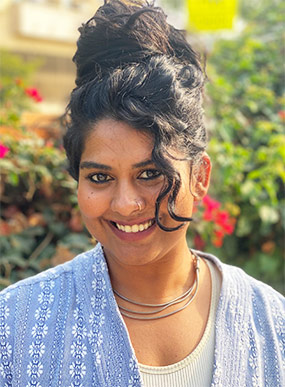
Gautami Ashok, Psychologist
In dealing with stressors, life events, challenging relationships, and traumatic experiences we develop patterns to keep ourselves safe and sane; which often also limits us. The challenge is unlearning these narratives and trusting our innate wisdom. When we feel safe, secure, and accepted for who we are we can begin the process of shedding what doesn’t work for us, while exploring our untapped potential.
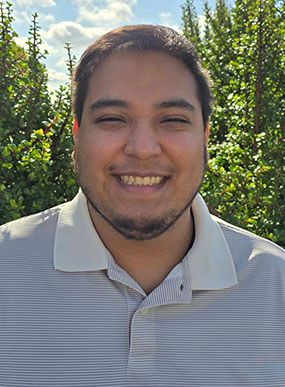
Daniel Gonzalez, M.A.
Therapy is a unique space where you can be yourself and be supported unconditionally. Regardless, being in therapy takes an immense amount of courage and vulnerability to share one’s hopes, insecurities, and losses with a therapist. After some years of experience as a therapist, I firmly believe in the transformative and potentially life-altering gifts therapy can bestow upon a person.
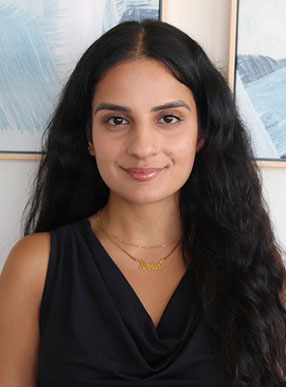
Simran Kaur, M.A.
As an individual with many intersecting identities, I am dedicated to fostering a therapeutic environment where every individual’s uniqueness is not only respected but embraced in our work together. I recognize that each facet of your identity—whether cultural, racial, gender-related, or spiritual—shapes your experiences and perspectives in profound ways.

Sophie Barrett, M.A.
As relational beings, our sense of self is often shaped by our relationships. Unfortunately, many of us encounter harmful or painful relationships that can leave us feeling disconnected and ashamed. I believe that therapy offers a path to untangle these experiences, helping us rediscover our capacity for connection to ourselves and to others. I am passionate about the power of therapy to create a safe, nurturing, and empowering environment where you can explore who you are and what you desire.

Daniel Bracco, AMFT
My favorite part of being a therapist is when someone sitting across from me realizes, even if just for a moment, that they are okay. That past and present traumas, mistakes, fears, desires, pain, doubt, joy, anger, sadness, guilt, loss, and love are all part of the human experience, and that in this way they are not alone.

Rachel Kolade, M.A.
I believe that our relational wounds, though painful, can be transformed through the healing power of therapy. My approach is rooted in the conviction that a safe therapeutic environment fosters space to explore, connect, and ultimately discover profound healing. When we share our stories in a secure space, we can explore our inner worlds with curiosity rather than shame, leading to a more grounded and secure external life. My passion lies in helping clients discover what it means to feel safe in their mind, body, and soul.
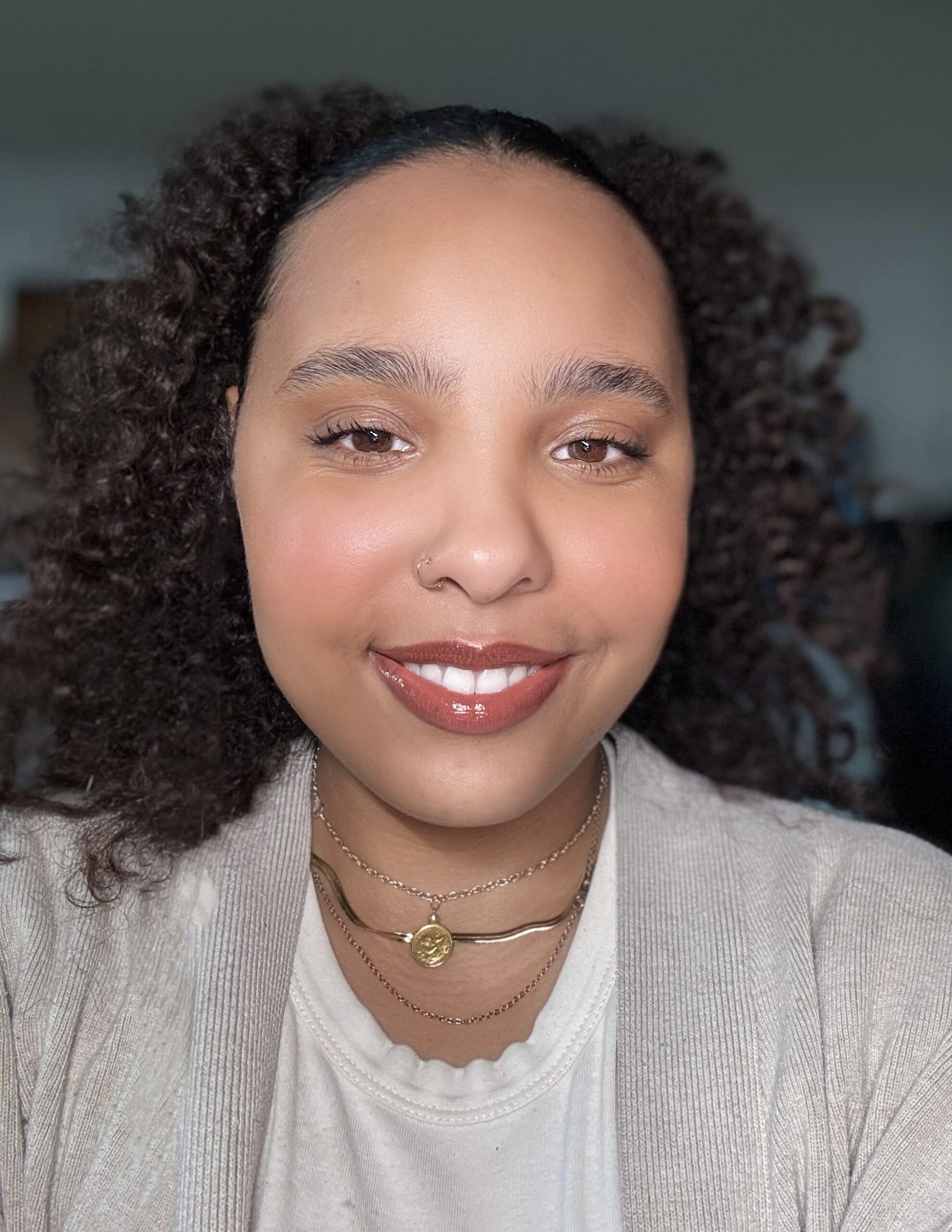
Alexandria Hughes, AMFT
In a fast-moving world, we rarely get the chance to pause, reflect, and truly care for ourselves. Many of us carry layers of unresolved emotions and untold stories, feeling the pressure to always appear “okay”—whether for others who rely on us or because of the fear of being judged. But therapy offers a unique space where it’s safe to slow down, to peel back those layers, and discover the parts of yourself that need healing. It’s a space to be vulnerable, to be honest, and to realize that you don’t have to carry everything alone.

Hannah Springer, M.A.
I believe that embracing our humanness with compassion and kindness is an ongoing journey that can lead to growth, authenticity, boldness, and healing. Accepting this process and avoiding self-criticism, can help us connect with our true selves, woven into the fabric of our bodies and minds. As Nikita Gill beautifully puts it, “You are a forest… an incredible self-sustaining thing of epic proportions.

Kameron Rigg, M.A.
I’m deeply committed to helping individuals navigate their mental health challenges by creating a safe, supportive, and non-judgmental environment where they can feel truly heard. I believe that fostering a therapeutic space rooted in trust allows clients to feel secure enough to explore even the most vulnerable aspects of their lives. My approach centers around collaboration, ensuring that therapy is a journey we embark on together, where clients can openly express their thoughts and emotions without fear of criticism.
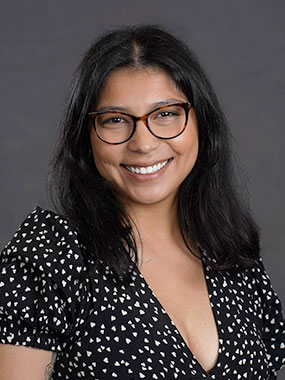
Karla Lizarraga, M.A.
My approach to therapy is grounded in the belief that you already hold everything you need within yourself to heal and grow. I see therapy as a collaborative and sacred space where we can explore and rediscover those inner resources together. In our work, we’ll welcome every part of you with compassion and curiosity—understanding how those parts came to be, the wisdom they carry, and the gifts they offer.

Laura Olear, M.A.
Change is an inevitable part of life, and for those who feel like they don’t fit in or often see themselves as the odd one out, navigating these shifts with self-compassion and empathy can foster profound healing and growth. I am honored to assistindividuals working through life transitions, partnering together to explore their biological, psychological, social, and spiritual well-being, while helping them gain clarity and thrive during pivotal moments.

Christian Carrillo, M.A.
Choosing to begin therapy can feel uncertain and unfamiliar, and it is also taking a brave step toward change and understanding. I believe that healing is rooted in meaningful and authentic connection to both ourselves and others. I offer a warm, nonjudgmental space where the individuality of each person is honored, and where we can explore the depth and complexity of your experiences with care. I am passionate about learning the stories of others, so my approach to therapy is collaborative and relational — coming alongside you to assist in removing the roadblocks that are hindering you.

Oanh Nguyễn, M.S.
As an immigrant, I have spent much of my life navigating between cultures and learning to embrace the complexity of holding more than one identity. That journey has taught me that healing often begins with self-acceptance—acknowledging the parts of ourselves that may feel contradictory and learning to weave them into a whole.

Sonia Sheely, M.A.
My work as a therapist is grounded in curiosity, compassion, and respect for each person’s unique story. I’m drawn to the deeper layers of experience—the unconscious patterns, emotions, and histories that shape who we are and influence the patterns that play out in our lives. I approach each person with cultural and spiritual humility, honoring the many ways we make meaning, seek healing, and relate to others.

Shantell Missouri, M.A.
Therapy is a space to pause, reflect and grow more at peace with yourself by uncovering the many dimensions of who you are. It’s an opportunity to explore your unique nature, the experiences that have shaped you, and the patterns and mechanisms you’ve developed to navigate life. As we build self-awareness, we also uncover the power and agency within ourselves to move toward self-actualization. Your emotions, thoughts, and experiences are not just things to manage.They can become tools and strengths that guide your growth and resilience.
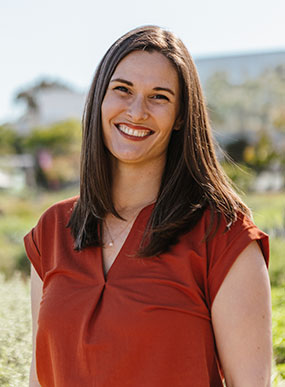
Ashley Webster, AMFT
I was drawn to this work out of a deep commitment to creating affirming, non-shaming spaces for identity exploration, healing, and growth. My therapeutic stance is person-centered, collaborative, and grounded in the belief that clients are the experts in their own lives. I strive to create space for both the deep work of grief and trauma processing and the healing power of humor, creativity, and connection. Outside the therapy room, I’m someone who values family, connection to nature, and shared laughter.

Sara Saad, M.A.
We are psycho-biologically wired for connection, yet our early relational histories can shape how safe we feel to love, trust, and be loved—ourselves and others! In therapy, I join my clients as they explore the deep relational roots they’ve been cultivated in, fostering growth and building their capacity to thrive. My goal is to help clients stay present with emotional discomfort—what Resmaa Menakem calls “clean pain”—as a path toward healing and wholeness.

Josh Kelly, M.A.
In therapy, I prioritize creating a safe, caring environment that encourages vulnerability and exploration of the self, so that you can determine what is most important in your life, and move forward in a way that is reflective of your values.
